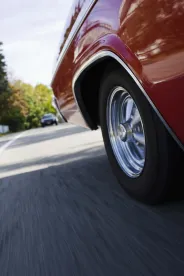Everyone knows that a drunk driver is liable for injuries he causes while behind the wheel. But what about the person or place that served the driver alcoholic beverages before he started driving? Is that person or place liable for injuries the person causes later on when driving while intoxicated? A recent case delves into this issue.
A roadside assistance driver stopped his vehicle on a highway shoulder behind a disabled truck. As he was putting air in one of the disabled truck’s tires, a driver of an SUV struck the rear of the roadside assistance vehicle, propelling it into the disabled truck. The roadside assistance worker was pinned between the vehicles and suffered massive blunt-trauma injuries. He died at the scene. Police arrived six minutes after the crash and detected a smell of alcohol emanating from the SUV’s open sunroof. The SUV driver failed multiple sobriety tests. Two hours after the collision, the driver’s blood alcohol level was measure at 0.19. The driver was subsequently convicted of operating a vehicle whole intoxicated.
The victim’s wife sued the driver. The Plaintiff alleged that the drunk driver was negligent, willful, and wanton for driving while he was intoxicated. The plaintiff also sued the company that owned the driver’s vehicle, claiming that the company was vicariously liable and had willfully, wantonly, and negligently entrusted the vehicle to the defendant driver. The plaintiff also sued the restaurant that served the defendant driver drinks earlier in the day. The plaintiff also sued a bar where the defendant driver had been drinking just before the incident. The plaintiff alleged that the restaurant and the bar had served the driver while he was visibly intoxicated. The plaintiff provided evidence that the driver had consumed six double vodkas (amounting to 21 ounces of vodka) and some wine over 6 or 7 hours while at the restaurant and that he had 1 to 3 glasses of wine later on when he was at the bar. The bar was a 45-second drive from where the crash happened.
The restaurant and bar denied having served the driver while he was visibly intoxicated. The bar also argued that the driver only had 1 glass of wine while he was there. The case proceeded to trial, and the jury awarded $25 million to the plaintiff, allocating fault at 40% to the driver, 30% to the bar, 20% to the restaurant, and 10% to the driver’s company that owned the vehicle. The restaurant previously had reached an agreement with the plaintiff that its liability would be capped at $1.65 million. It is unknown whether or not there was a similar agreement with the other defendants in the case.



 />i
/>i
